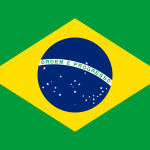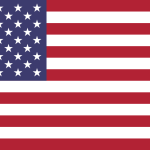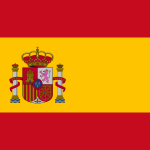[ad_1]
According to new research from Toronto Metropolitan University, 100% orange juice and sugar-sweetened beverages are not equivalent when looking at effects on food intake and glycemic response, and they should not be grouped into the same category when making beverage decisions.

Consumption of 100% orange juice before meals, when compared to an orange drink, reduced food intake at the next meal and resulted in lower daily blood glucose concentrations in healthy, normal weight adults. Is.
Reducing intake of free sugars to 10% or less of daily energy intake is suggested by the World Health Organization to reduce the risk of unhealthy body weight and dental caries.
In line with these recommendations, some national dietary guidelines recommend reducing sugar intake from all sources.
Nevertheless, because these recommendations do not isolate the source of free sugars and are based primarily on data from observational studies, the physiological mechanisms underlying any observed effects cannot be easily determined.
“Our findings emphasize the importance of considering the source of sugar when looking at overall health effects,” said Dr. Nick Bellissimo of Toronto Metropolitan University, senior author of the study.
The randomized, repeatedly measured study involved 36 male and female adults with body mass index at normal levels who consumed cereal, 2% milk, and 1 cup 100% orange juice, orange-flavored, two hours after breakfast. Consumed sugar-sweetened beverages and water. A breakfast bar.
Glycemic response, average hunger, and subjective feelings were measured every 15 minutes for 60 minutes in 34 participants.
Rest-of-the-day glycemic response and energy intake were determined using continuous glucose monitors and food records in 31 participants.
Subjective sweetness and pleasantness were determined immediately after the beverage was tasted.
Glycemic response, average hunger, and subjective feelings were measured every 15 minutes for 60 minutes.
Food intake for the pizza lunch was scheduled 60 minutes later.
Blood glucose was lower after 100% orange juice than after orange drink at 15, 30 and 45 minutes, but not after 60 minutes.
Blood glucose concentrations were lower for the rest of the day after 100% orange juice compared to orange drink and water.
The findings also showed that food intake at lunch and throughout the day was lower after drinking 100% orange juice compared to the orange drink.
Participants enjoyed 100% orange juice more with higher subjective pleasantness measurements than orange drink and water.
Substituting sugar-sweetened beverages with 100% orange juice can reduce total calorie intake throughout the day and help control blood sugar levels.
100% orange juice contains flavonoids like hesperidin that may affect sugar absorption by delaying glucose transport resulting in delayed glycemic response.
Consumption of 100% orange juice is associated with higher intake of flavonoids, less added sugars, and a higher quality diet.
“Consuming 100% orange juice as a preload resulted in greater calorie compensation, lower total daily energy intake, and lower blood glucose concentrations compared to orange drinks,” the researchers said.
“Future longitudinal studies are needed to assess whether habitual replacement of sugar-sweetened beverages with 100% orange juice can contribute to healthy body weight and better glycemic control.”
The paper was published in the journal Nutrients,
,
Stephanie Robaio and others, 2024. Effect of 100% orange juice and volume-matched sugar-sweetened beverages on subjective appetite, food intake, and glycemic response in adults. Nutrients 16(2):242; DOI: 10.3390/nu16020242
[ad_2]
Source link






